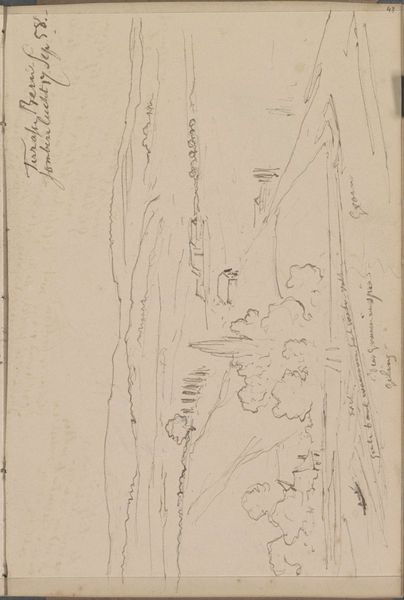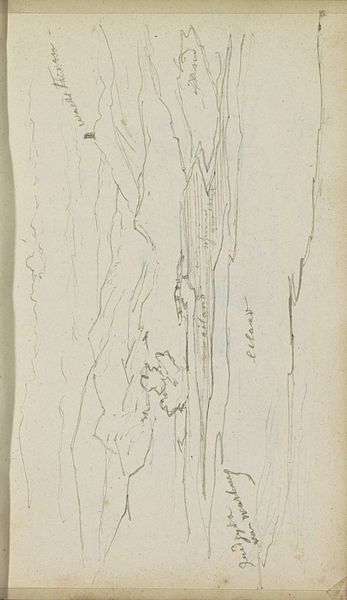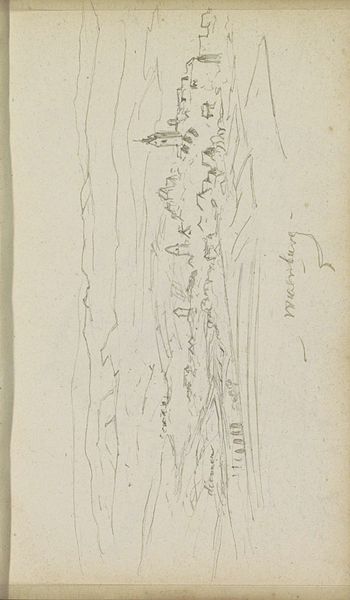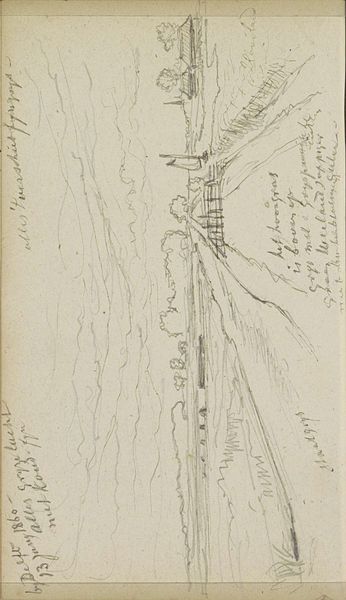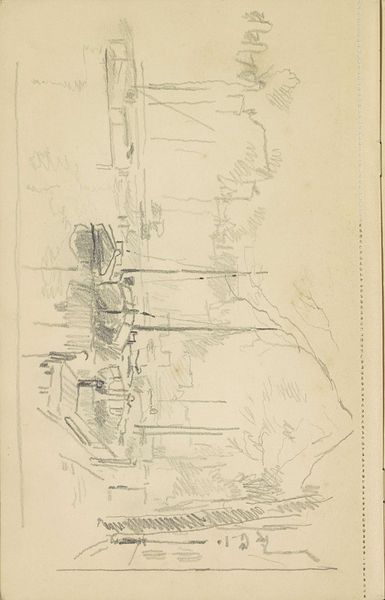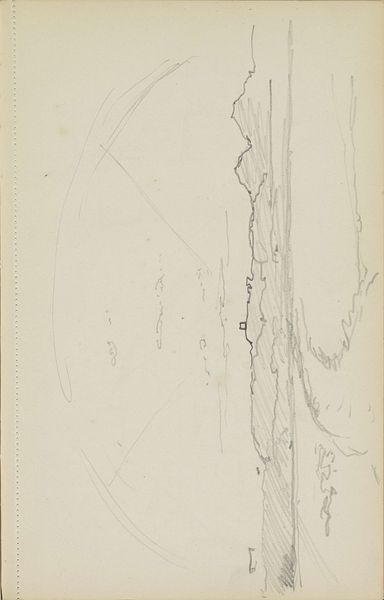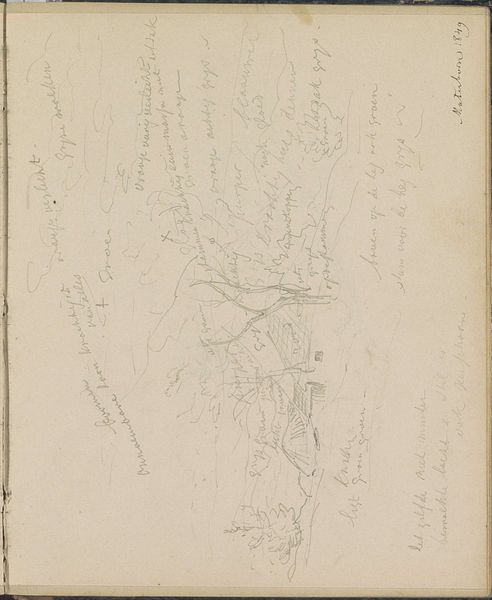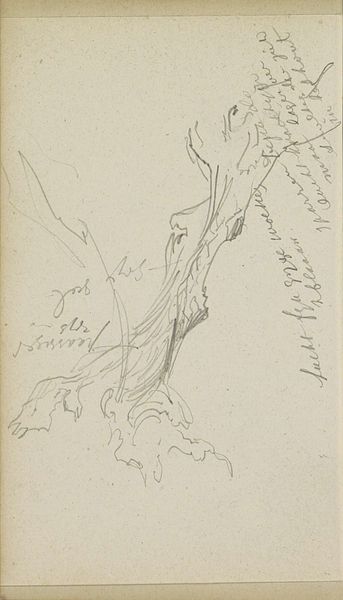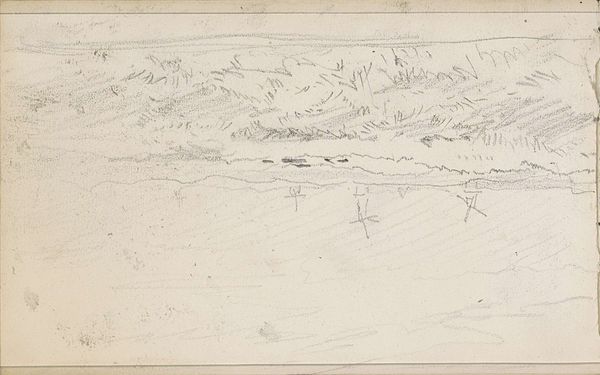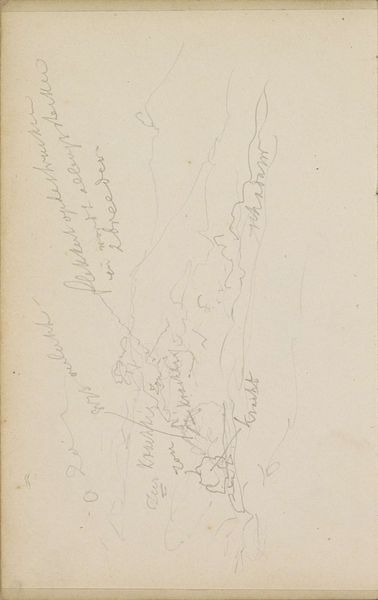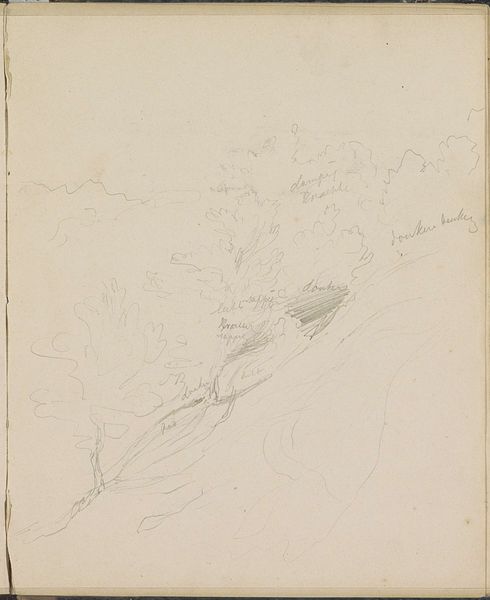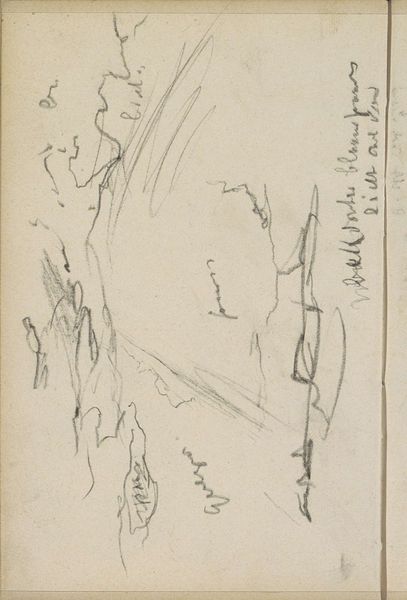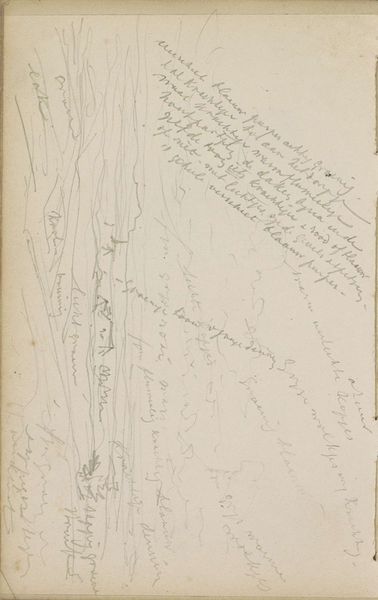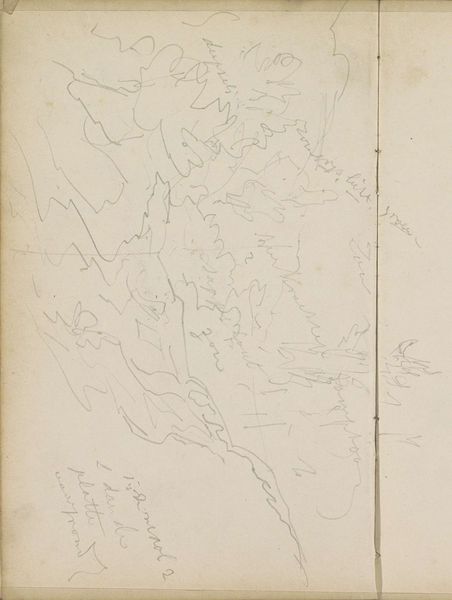
#
amateur sketch
#
lake
#
toned paper
#
light pencil work
#
pen sketch
#
incomplete sketchy
#
personal sketchbook
#
ink drawing experimentation
#
pen-ink sketch
#
sketchbook art
#
watercolor
Copyright: Rijks Museum: Open Domain
Johannes Tavenraat’s “Meer van Brienz” was made in 1872, probably on site, using a graphite pencil on paper. Graphite, essentially carbon, is a relatively common material, but its use here speaks to a particular approach to art making. Unlike painting, which requires the meticulous layering of pigment, graphite offers a directness, a way to quickly capture the essence of a scene. Look closely, and you'll see the varying pressure of Tavenraat’s hand. The sharp, dark lines define the craggy cliffs, while lighter, feathery strokes suggest the reflections on the lake. The artist's technique, born from the inherent qualities of graphite, allows for the quick, almost journalistic recording of a landscape. This isn't just a pretty picture; it's a record of a specific moment in time. It is the artistic labor of observation and documentation, a practice that elevates a humble material to a powerful means of expression. The work challenges our notions of art, reminding us that the means of production—in this case, pencil on paper—can be just as significant as the final product.
Comments
No comments
Be the first to comment and join the conversation on the ultimate creative platform.
